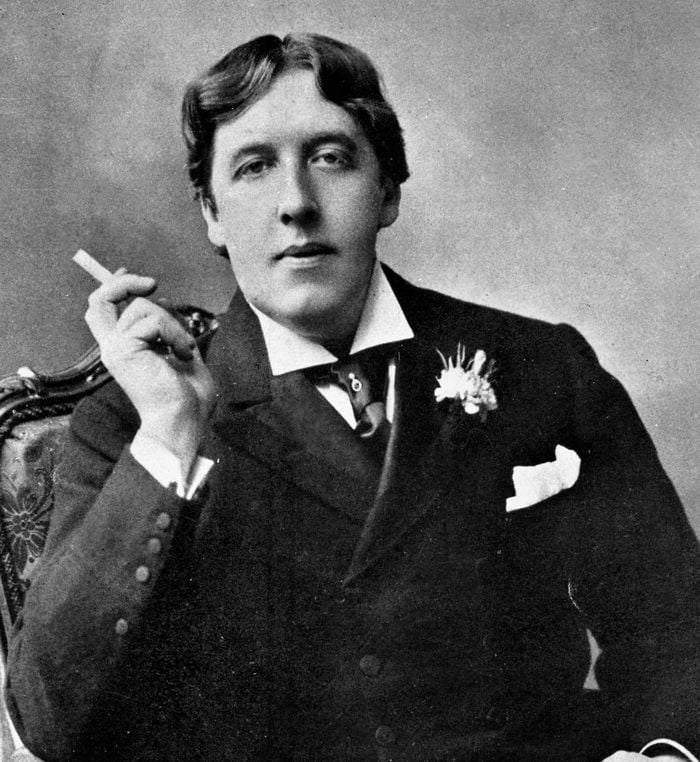Oscar Wilde (1854-1900)
Wilde was bom in Dublin in 1854, the son of distinguished parents. His mother, Lady Wilde, was famous for her volumes of Irish stories. Wilde went first to Trinity College, Dublin, and later to Oxford. His first published work was a volume of poems in 1881. From that time until 1895 he wrote plays, poems, essays, a novel, and several short stories and fairy tales. Wilde`s jewelled style was never employed to better purpose than in the group of tales from which The Selfish Giant has been selected. In 1895 he was sentenced to two years` hard labour as a result of a notorious trial. After his release he travelled in Italy and France, and died in 1900 at Paris.The Selfish Giant is reprinted, by permission of Mr. Philip Nutt, from The Happy Prince and Other Tales, published by Gerald Duckworth and Co.
The Selfish Giant
Every afternoon, as they were coming from school, the children used to go and play in the Giant`s garden.It was a large lovely garden, with soft green grass. Here and there over the grass stood beautiful flowers like stars, and there were twelve peach- trees that in the Spring-time broke out into delicate blossoms of pink and pearl, and in the autumn bore rich fruit. The birds sat on the trees and sang so sweetly that the children used to stop their games in order to listen to them. “How happy we are here!” they cried to each other.One day the Giant came back. He had been to visit his friend the Cornish ogre, and had stayed with him for seven years. After the seven years were over he had said all that he had to say, for his conversation was limited, and he determined to return to his own castle. When he arrived he saw children playing in the garden.“What are you doing there?” he cried in a very gruff voice, and the children ran away.“My own garden is my own garden,” said the Giant; “anyone can understand that, and I will allow nobody to play in it but myself. So he built a high wall all round it, and put up a notice-board.He was a very selfish Giant.The poor children had now nowhere to play. They tried to play on the road, but the road was very dusty and full of hard stones, and they did not like it. They used to wander round the high wall when their lessons were over, and talk about the beautiful garden inside. “How happy we were there,” they said to each other.
Read More about The Robbers of Egypt 1








